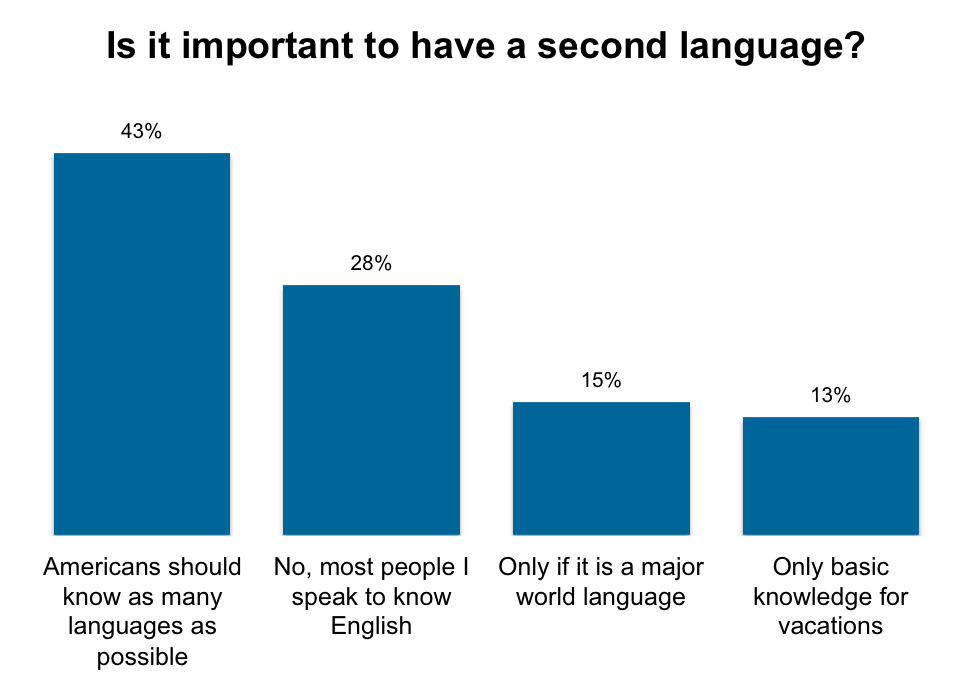
Becoming bilingual is crucial for USD students, Americans
In a world that’s becoming more connected every day, it’s now more beneficial to learn another language —even in the English-heavy country of the United States.
According to the U.S. Census Bureau, a record-breaking one in five Americans speak another language other than English in their household. This percentage is only expected to go up in the upcoming years, showing that the U.S. will become a more multilingual country.
The most spoken language in the U.S. is Spanish, with the number of speakers at around 40 million. Knowing this statistic, speaking Spanish will be incredibly important and advantageous in the future.
Knowing Spanish or any other language will open more opportunities for people looking to start a career. In fact, even in South Dakota where the non-English speaking population isn’t as high as in other places, college students are already thinking ahead and preparing for the more multilingual world.
Megan Bartels, a junior majoring in international studies, is one of many students who is getting a start in another language. With a minor in German, she believes that knowing a second language will help enhance her career path and increase her chances of working in ambassadorship.
According to USD’s chair of modern languages Laura Vidler, many students on campus are double majoring with a foreign language. There are biology and psychology majors who are also majoring in another language with the goal of incorporating that language into their career goals.
Some would say learning a second language in the United States would be unnecessary for them because they don’t think it will help in their future career or they don’t plan to live in an area where languages other than English are prevalent. But there are other benefits to learning another language besides just getting ahead career-wise.
Learning another language also involves studying the culture associated with said language. When studying another culture, people get a better understanding of new values and ideas and are able to see the world from another point of view.
Having a conversation with someone from a different cultural background after studying their language and their culture helps each person understand each other better. In turn, people can work together more efficiently and keep misunderstanding borne from cultural differences to a minimum.
Another great benefit to learning a second language is it can affect one’s brain in a positive way. The American Council on the Teaching of Foreign Languages has found solid evidence that learning a second language actually increases one’s cognitive abilities. The evidence has also shown that learning a second language decreases the risks for conditions such as Alzheimer’s and dementia later in life.
When it comes down to it, the benefits of learning a second language are many. They range from better career opportunities to actual health benefits. In a highly connected modern world, learning a second language is one of the best investments someone can make.
